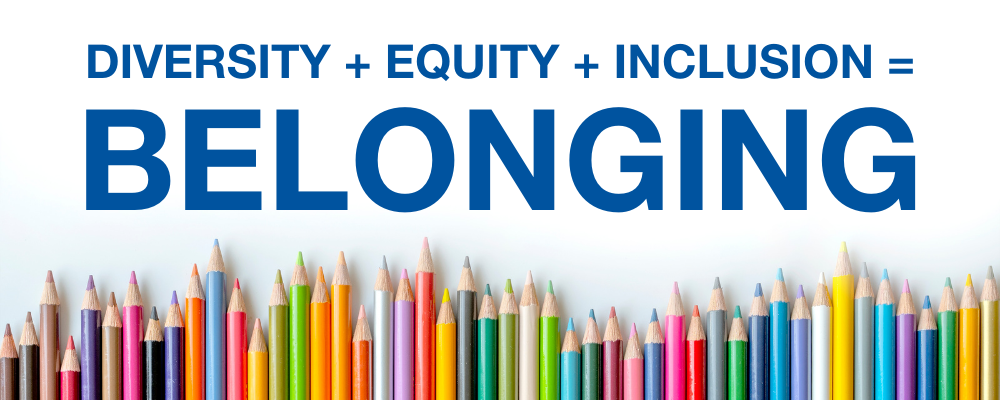
The “B” in DEIB – Strategies for Fostering Belonging
The importance of an employee feeling like they belong cannot be overstated, as it directly impacts individual and organizational outcomes. An employee’s race, religion, sexual identity, gender, and age must be taken into consideration if a credit union seeks to create a culture of belonging. This strong sense of belonging contributes significantly to employee well-being, engagement, and overall job satisfaction. Here are key reasons why fostering a sense of belonging for all employees is crucial:
- Increased Employment Engagement.
- Enhanced Job Satisfaction.
- Improved Collaboration and Team Dynamics.
- Enhanced Employee Well-Being.
- Increased Productivity and Innovation.
- Reduced Turnover and Absenteeism.
- Positive Organizational Culture.
These seven reasons are reason enough to foster a culture of belonging. A workplace where employees feel connected, valued, and included is one where employees feel like they belong. Below, we will explore various strategies A credit union can implement to create a workplace culture promoting belonging.
- Promote Inclusive Leadership: Inclusive leadership is vital for a credit union to create a workplace culture where everyone feels valued. Leaders should represent all employees and be willing to actively seek out and listen to diverse perspectives, promote open communication, and encourage collaboration. By modeling inclusive behavior, leaders set the tone for the entire organization. Leaders who practice inclusivity create an environment where employees feel heard and understood; this fosters a sense of belonging.
- Establish Inclusive Policies and Practices: Ensure the credit union’s policies and practices reflect a commitment to diversity and inclusion. This includes unbiased recruitment processes, equal opportunities for career advancement, and fair treatment for all employees. Organizations should also implement flexible work arrangements to accommodate diverse needs.
- Address Micro-Aggressions and Bias: Actively address and eliminate microaggressions and biases within the workplace. Foster a culture where diversity is celebrated, and employees feel safe reporting discrimination, prejudice, or bias. Promoting a zero-tolerance policy conveys that everyone is respected and valued.
- Provide Diversity and Inclusion Training: Equip employees with the history of marginalized groups and the knowledge and skills to navigate a diverse workplace. Diversity and inclusion training will increase awareness, reduce biases, and promote understanding among team members. This training fosters a more inclusive environment where everyone feels respected.
- Put into Place Recognition and Appreciation Practices: Acknowledging employees’ efforts and accomplishments fosters a sense of value and belonging. Regularly recognize and appreciate individual and team contributions through verbal praise, awards, or public acknowledgment. This helps create a positive and affirming atmosphere. A fair and transparent recognition system ensures every employee feels valued, reinforcing a sense of belonging.
- Encourage Team-Building Activities: Team-building activities strengthen interpersonal relationships and build camaraderie outside regular work tasks. Whether it’s a team lunch, a volunteer event, or a fun team-building exercise, these activities contribute to a sense of unity and shared purpose. When team-building activities are fun, they effectively build strong connections among team members, promoting collaboration and communication that break down barriers and foster unity and belonging.
- Provide Flexible Work Arrangements: Offering flexible work arrangements demonstrates trust and recognizes the diverse needs of employees. Whether it’s remote work options, flexible hours, or compressed workweeks, providing flexibility promotes work-life balance and increases overall job satisfaction.
- Create a Welcoming Physical Environment: The physical workspace plays a significant role in how employees feel about their workplace. Design a welcoming office space that reflects diversity, includes comfortable common areas, and promotes collaboration. A positive physical environment contributes to a sense of belonging.
- Identify Employee Development Opportunities: Invest in employees’ professional growth by providing training and development opportunities. This enhances their skills and communicates that the organization is committed to their long-term success. Employees who feel supported in their career development are likelier to feel a sense of belonging.
- Establish Clear Communication Channels: Transparent and open communication is essential in creating a sense of belonging. Keep employees informed about organizational goals, changes, and updates. Establish feedback mechanisms to ensure employees feel heard and their concerns are addressed.
- Create Employee Resource Groups (ERGs): ERGs bring together employees with common characteristics, interests, or backgrounds. These groups provide a platform for networking, communication, mentorship, employee assistance programs, and support. By recognizing and celebrating diverse identities, ERGs contribute to a sense of belonging among employees. ERGs provide emotional support and guidance, creating a safety net for employees facing challenges inside and outside the workplace.
- Acknowledge and Celebrate Differences: Embrace diversity by celebrating various cultural, religious, and social events. Recognize and commemorate important occasions relevant to your employees. Creating an inclusive calendar acknowledging diverse celebrations fosters a sense of belonging among all team members.
- Establish a Mentorship Program: Mentorship programs can provide employees with guidance and support, helping them navigate their professional journey. Pairing employees with mentors from different backgrounds can enhance cross-cultural understanding and create a more inclusive workplace.
- Lead By Example: Leadership sets the tone for the entire credit union. Leaders who exemplify inclusive behavior inspire their teams to follow suit. By fostering a culture of openness, acceptance, and respect, leaders contribute significantly to creating a workplace where everyone feels like they belong.
Creating a workplace where employees feel a sense of belonging is ongoing and requires commitment and dedication from leadership. By embracing diversity, implementing inclusive practices, and prioritizing employee well-being, organizations will foster an environment where every employee feels valued, respected, and an integral part of the team.